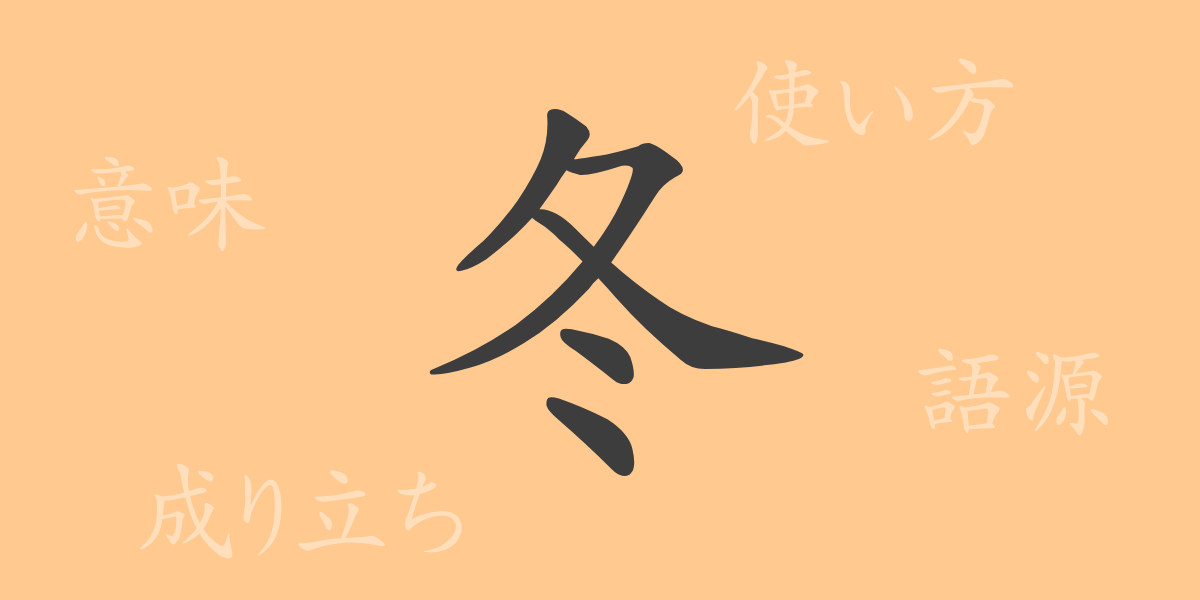Each of Japan’s four seasons has its own unique beauty, deeply influencing many aspects of culture and tradition. Among these, ‘winter’ stands out with its severe cold and the unique atmosphere created by its quiet and clear air. This article focuses on the Kanji ‘冬(とう)’, exploring its origins, meanings, usage, and extending into idioms and proverbs, thus diving deep into the allure of winter.
Origins of ‘冬(とう)’
The Kanji ‘冬’ has its roots in ancient China, linked to the Yin-Yang and the Five Elements theory. This season, characterized by intensifying cold, represents a period when nature enters rest, conserving energy for the forthcoming stages. The Kanji symbolizes this time of introspection and preparation for the upcoming seasons, reflecting the flow of time and natural rhythms.
Meaning and Usage of ‘冬(とう)’
‘冬’ denotes the season of winter, marked by intense cold and frequent snowfalls. It’s a time when agricultural activities diminish, traditionally a period referred to as ‘winter seclusion (ふゆごもり)’, fostering intimate communication within families indoors. Winter also describes the period of hibernation for animals and the dramatic changes in the landscape, such as snowscapes.
Readings, Stroke Count, and Radical of ‘冬(とう)’
‘冬’ is integral in daily communication, and knowing its reading, stroke count, and radical is essential:
- Readings: On’yomi ‘トウ’, Kun’yomi ‘ふゆ’
- Stroke count: 9
- Radical: 冫(にすい)
Phrases, Idioms, and Proverbs Using ‘冬(とう)’
The Kanji ‘冬’ appears in numerous idioms and proverbs, enriching the Japanese language with expressions that not only depict the season’s sensory details but also symbolize human emotions and societal states:
- 冬将軍(ふゆしょうぐん) – Personification of winter’s severity, describing the onset of a strong cold wave.
- 冬眠(とうみん) – Hibernation, where animals cease activities during winter, metaphorically used for people withdrawing from social interactions.
- 一寒四温(いっかんしおん) – A pattern of one cold day followed by four warmer days, symbolizing the fluctuations in progress and situations.
Conclusion on ‘冬(とう)’
Far more than just a cold season, winter in Japan holds profound meanings embedded within its nature and culture. Celebrated in many poems and literary works, influencing lifestyle and emotions, ‘冬’ is a cherished season. The introspective period that winter introduces offers a chance for preparation and growth, readying for the renewal that spring brings. The Kanji ‘冬’ encapsulates these seasonal nuances of Japan, enhancing our appreciation of the language and cultural depth.

























